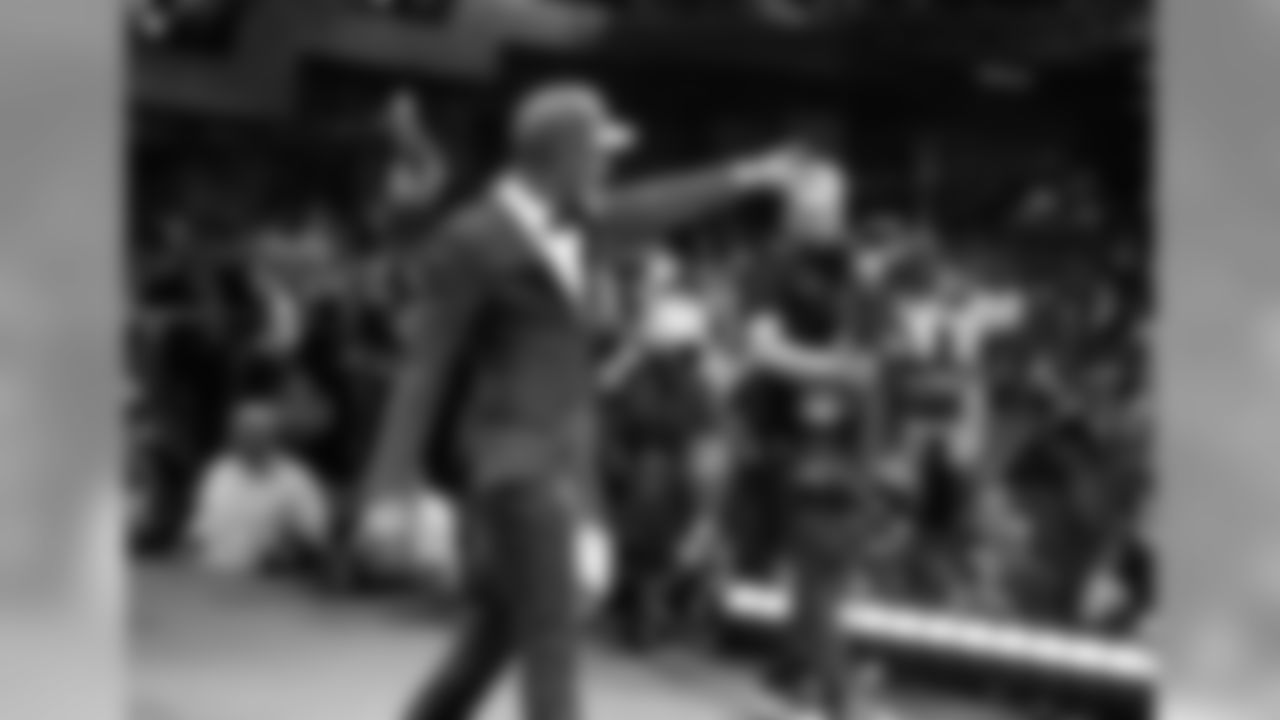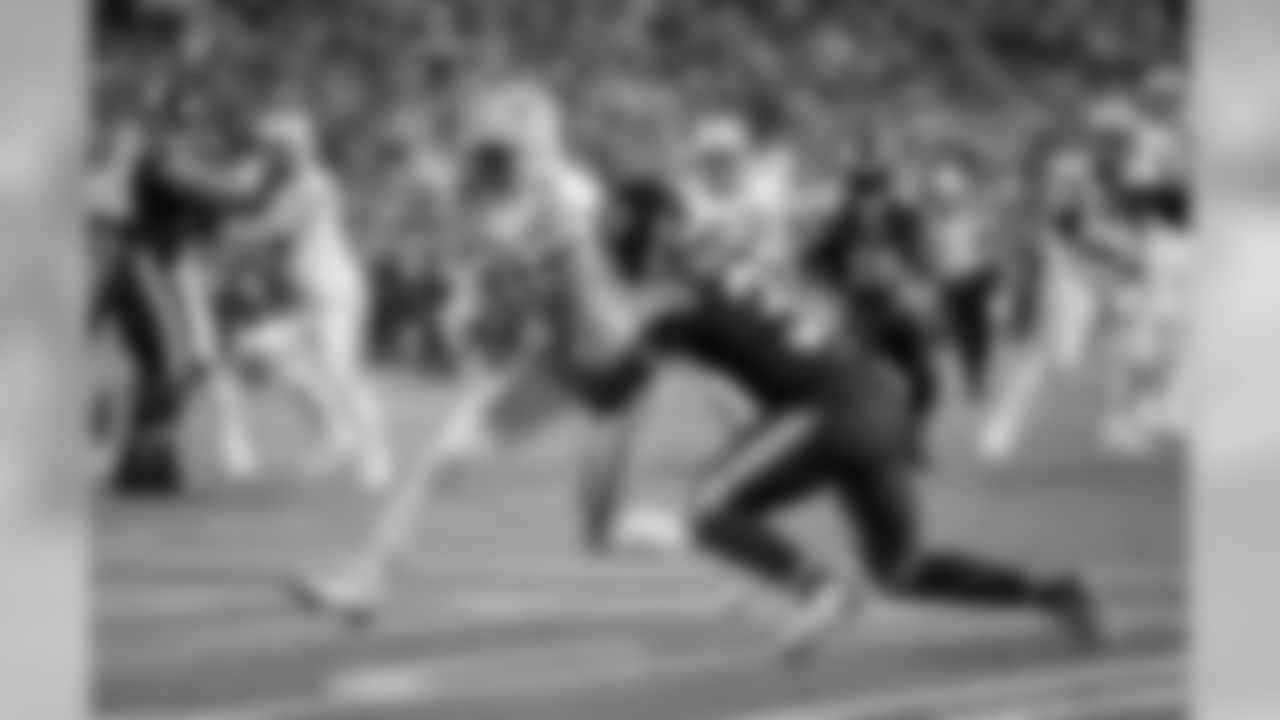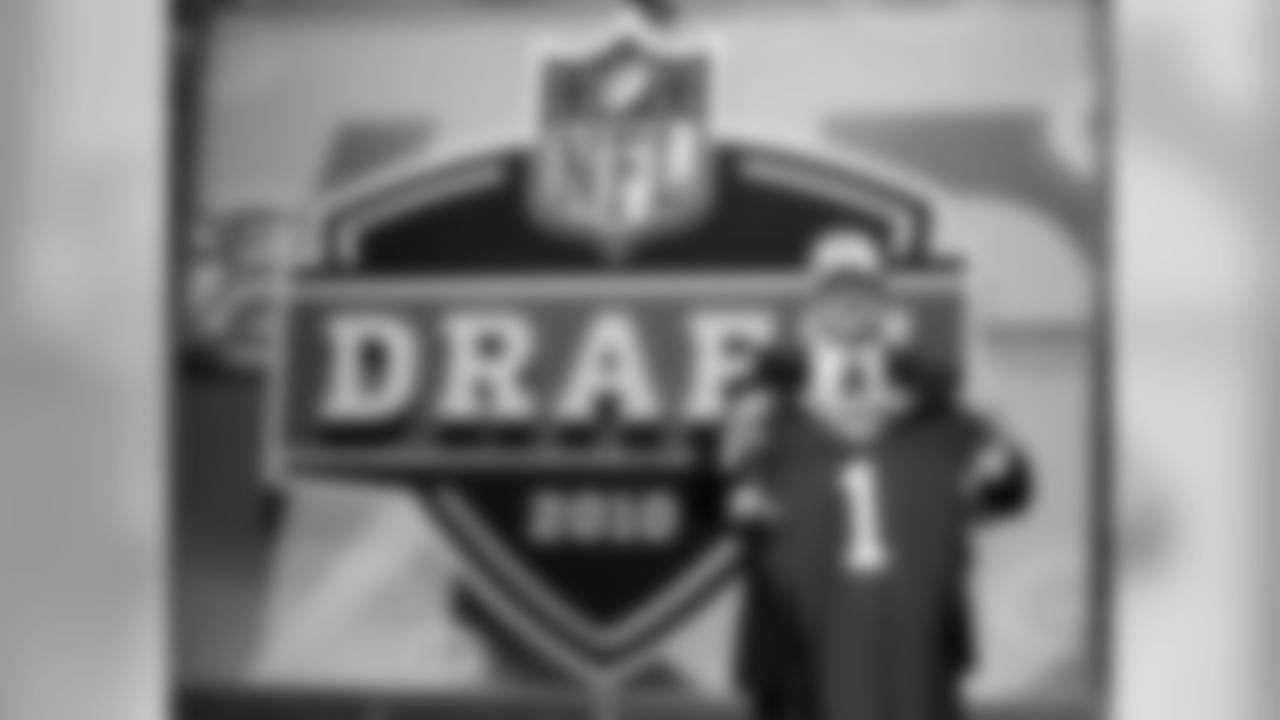Let's step back in time and look at the teams that exercised the first 10 picks and passed on Aaron Rodgers in the 2005 NFL draft.
- San Francisco. 2. Miami. 3. Cleveland. 4. Chicago. 5. Tampa Bay. 6. Tennessee. 7. Minnesota (from Oakland). 8. Arizona. 9. Washington. 10. Detroit.
Get the drift?
Here it is 13 years later and some of the same teams are still in the market for a quarterback or will be drafting in the top 10 again tonight because they haven't fixed their quarterback problem.
Take a look back at photos of some Packers players from the NFL Draft and current photos of them now. Photos by AP, James D. Smith and Evan Siegle, packers.com

QB Aaron Rodgers

QB Aaron Rodgers

QB Aaron Rodgers

QB Aaron Rodgers

S Ha Ha Clinton-Dix

S Ha Ha Clinton-Dix

S Ha Ha Clinton-Dix

S Ha Ha Clinton-Dix

WR Randall Cobb

WR Randall Cobb

WR Randall Cobb

WR Randall Cobb

LB Nick Perry

LB Nick Perry

LB Nick Perry

LB Nick Perry

T Bryan Bulaga

T Bryan Bulaga

T Bryan Bulaga

T Bryan Bulaga

CB Kevin King

CB Kevin King

CB Kevin King

CB Kevin King
Cleveland, which owns two of the top four selections, passed on Rodgers back then to take wide receiver Braylon Edwards and remains desperate for a quarterback.
The Browns chose Edwards over Rodgers even though their projected starter at quarterback going into the 2005 season was 33-year old, recently acquired Trent Dilfer, who had started only 12 games in the previous four seasons with Seattle.
Since 2005, the Browns have drafted three quarterbacks in the first round – Brady Quinn, Brandon Weeden and Johnny Manziel – and used 15 different starters at the position.
San Francisco, Chicago and Tampa Bay will be drafting in the top 10 tonight, barring trades, just as they did 13 years ago, largely because quarterback has continued to be a trouble spot.
None of the three figure to draft a quarterback high after investing heavily in the position in the last three years and believing they've finally found their answer. But the jury is still out.
The 49ers acquired Jimmy Garoppolo last October for a second-round draft pick and he finished the season with five starts and five victories.
Thirteen years ago, the 49ers chose Alex Smith No. 1 over Rodgers, and clearly blew it. In his seven years in San Francisco, Smith compiled a 38-36-1 record, which hardly compares with Rodgers' 94-48 record since he became the Packers' starter in 2008.
The Bears selected Mitch Trubisky with the No. 2 choice last year and the Buccaneers picked Jameis Winston No. 1 overall in 2015. Like the 49ers, both have high hopes that they've finally hit the jackpot, but they've dealt with more grief than cheers in the years in between.
Before committing to Trubisky for the final 12 games last season, the Bears had gone 51-51 with Jay Cutler during his eight seasons and 48-46 with the other 11 quarterbacks they had started since 2005. Cutler cost them two first-round picks, a third offset by a fifth, and Kyle Orton, who had been 21-12 as a starter prior to the trade.
In the 10 years before drafting Winston, the Bucs used 11 different starting quarterbacks and lost two wild-card games in their only two playoff appearances.
The Bears and Bucs both selected running backs – Cedric Benson and Cardell Williams, respectively – instead of Rodgers.
Miami also took a running back, Ronnie Brown, with the second overall pick in 2005, and it, too, has lost two wild-card games in its only two playoff appearances since.
Ryan Tannehill had been the Dolphins' starting quarterback for five years prior to his injury last season. They spent the eighth pick on him in the 2012 draft and his record as a starter has been 37-40.
The Dolphins pick 11th this year and a quarterback could be a temptation, considering they still don't know what they have in Tannehill.
Tennessee and Minnesota both made the playoffs last season. Both expect big things from their yet-to-turn-30 quarterbacks, Marcus Mariota and Kirk Cousins. But both teams have also paid dearly over the past 13 years to get to a point where they still can't be sure they've found a quarterback who can win the Lombardi Trophy.
The Titans have used three No. 1 picks on quarterbacks – Mariota, second overall in 2015; Jake Locker, No. 8 in 2011; and Vince Young, No. 3 in 2006 – since they passed on Rodgers to draft cornerback Pacman Jones.
The Vikings paid Cousins a fully guaranteed $84 million this offseason despite his 26-30-1 record as a starter.
Less than two years earlier, the Vikings swapped first- and fourth-round draft picks for Sam Bradford and got 17 starts out of him. That was two years after they chose Teddy Bridgewater in the first round and got 28 starts out of him. Bridgewater was selected three years after the Vikings used the 12th overall choice to select Christian Ponder, who started 36 games.
All that because the Vikings elected to draft wide receiver Troy Williamson, who caught 79 passes for them in three seasons, at No. 7 13 years ago.
During this offseason's quarterback recycle, Arizona now has Bradford and Washington has Smith.
Arizona and Washington opted for defensive backs – Antrel Rolle and Carlos Rogers, respectively – with the eighth and ninth picks the year Rodgers was forced to stew in the Green Room.
This is the third time the Cardinals have gone the stopgap route to try and make up for their mistake. Kurt Warner was 34 when they signed him as a free agent in 2005 almost two months before the draft and Carson Palmer was also 34 when they traded for him in 2013.
Bradford will turn 31 this season.
Washington selected quarterback Jason Campbell one pick after Rodgers in 2005 and spent another No. 1, the second choice overall, to draft Robert Griffin III in 2012.
The only team that had a top 10 pick in 2005 that has what might be a top 10 quarterback, as of today, is Detroit with Matthew Stafford, the first overall pick in the 2009 draft. Four years earlier, when they passed on Rodgers, the Lions drafted 10th and tabbed wide receiver Mike Williams, who played 22 games for them over a season-and-a-half and caught 37 passes.
By choosing Rodgers with the 24th selection in what was then the 70th annual NFL draft, general manager Ted Thompson essentially did something nobody had done before: He picked a future Pro Football Hall of Fame quarterback as the heir apparent to another future Hall of Fame quarterback (Brett Favre) entering the twilight of his career.
It would seem that Thompson also saved the Packers what might have been a much steeper price in the years ahead; and, no doubt, saved himself, the franchise and its fans untold misery.















